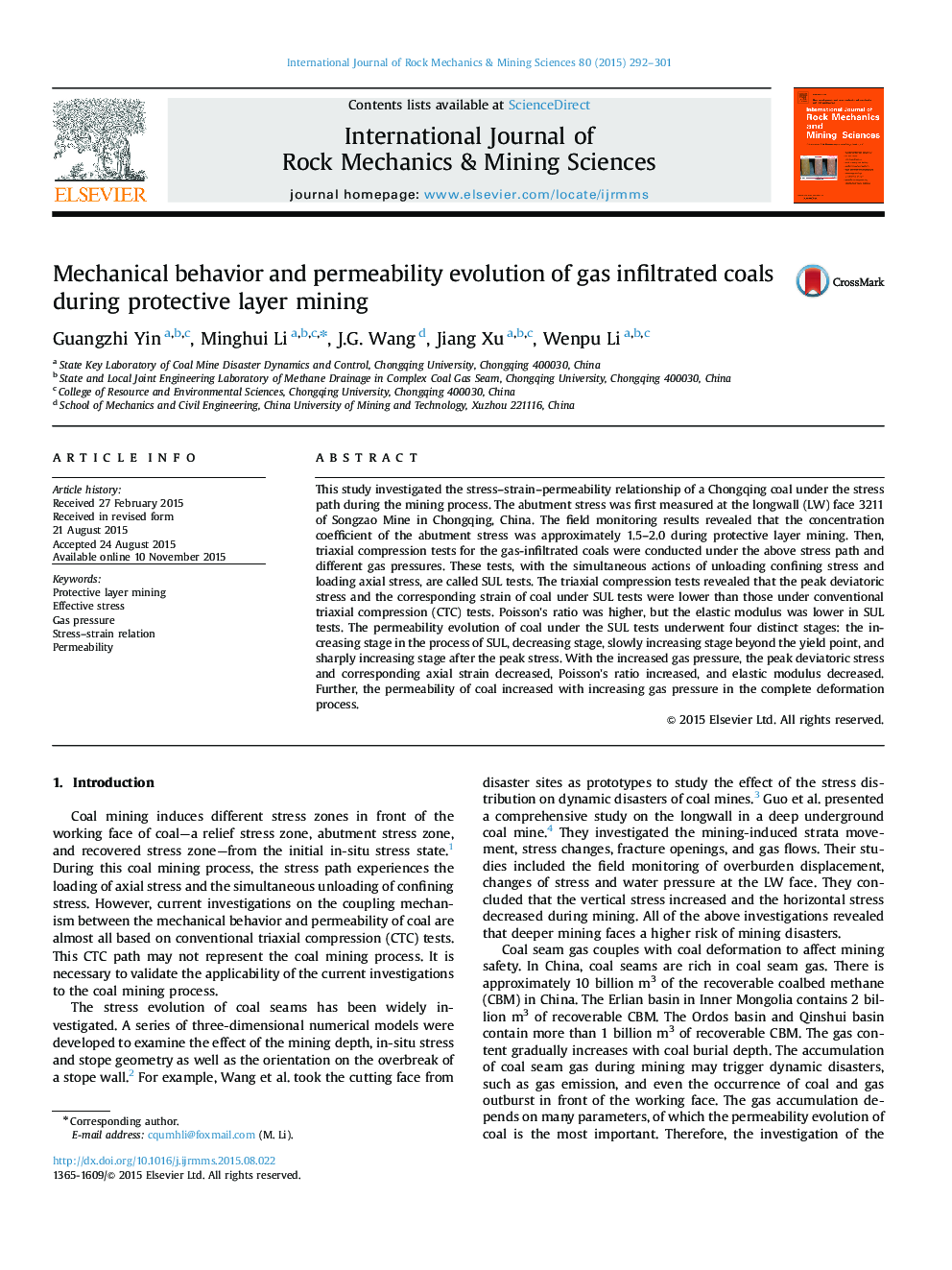| Article ID | Journal | Published Year | Pages | File Type |
|---|---|---|---|---|
| 809034 | International Journal of Rock Mechanics and Mining Sciences | 2015 | 10 Pages |
•Stress concentration coefficients are obtained by field monitoring.•Unloading confining stress impacts on the mechanical behavior and permeability.•Gas pressure modifies the mechanical behavior and permeability evolution.•Unloading confining stress may affect the safety of underground coal mining.
This study investigated the stress–strain–permeability relationship of a Chongqing coal under the stress path during the mining process. The abutment stress was first measured at the longwall (LW) face 3211 of Songzao Mine in Chongqing, China. The field monitoring results revealed that the concentration coefficient of the abutment stress was approximately 1.5–2.0 during protective layer mining. Then, triaxial compression tests for the gas-infiltrated coals were conducted under the above stress path and different gas pressures. These tests, with the simultaneous actions of unloading confining stress and loading axial stress, are called SUL tests. The triaxial compression tests revealed that the peak deviatoric stress and the corresponding strain of coal under SUL tests were lower than those under conventional triaxial compression (CTC) tests. Poisson's ratio was higher, but the elastic modulus was lower in SUL tests. The permeability evolution of coal under the SUL tests underwent four distinct stages: the increasing stage in the process of SUL, decreasing stage, slowly increasing stage beyond the yield point, and sharply increasing stage after the peak stress. With the increased gas pressure, the peak deviatoric stress and corresponding axial strain decreased, Poisson's ratio increased, and elastic modulus decreased. Further, the permeability of coal increased with increasing gas pressure in the complete deformation process.
